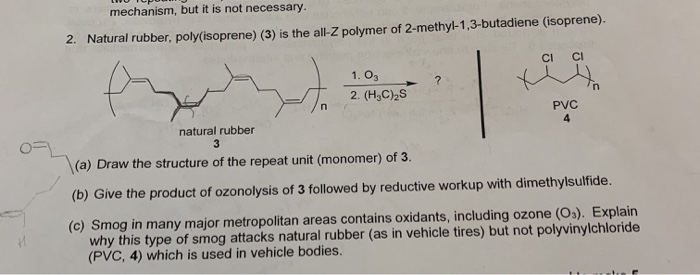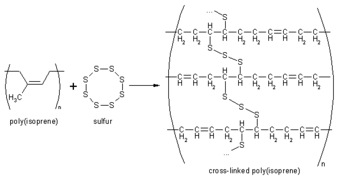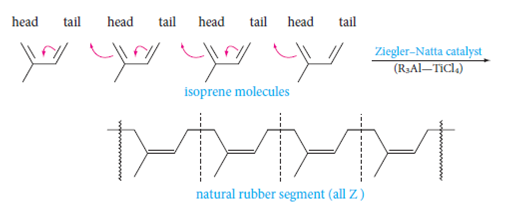Depending on its molecular structure polyisoprene can be a resilient elastic polymer elastomer as in the case of natural rubber and isoprene rubber or a tough leathery resin as in the case of natural and.
Structure of monomer unit of natural rubber is.
The term polymer comes from the greek poly meaning many and mer meaning parts.
Natural rubber is a linear polymer of isoprene.
Polyisoprene a polymer of isoprene c5h8 that is the primary chemical constituent of natural rubber of the naturally occurring resins balata and gutta percha and of the synthetic equivalents of these materials.
2 buna n nitrile rubber it is obtained by polymerization of 1 3 butadiene acrylonitrile in the presence of a peroxide catalyst it is used.
Synthetic rubbers are often based on butadiene which is structurally related to isoprene.
Isoprene or 2 methyl 1 3 butadiene is a common organic compound with the formula ch2 c ch3 ch ch2.
The monomer unit for natural rubber is isoprene.
He correctly deduced the empirical formula c5h8.
C h c h 2.
Natural rubber is an elastomer.
Macro considerations natural rubber is a polymer a long chain like molecule that contains repeating subunits.
The structure of isoprene is given below.
Briefly explain the properties of elastomers.
Polyisoprene polymer of isoprene c 5 h 8 that is the primary chemical constituent of natural rubber of the naturally occurring resins balata and gutta percha and of the synthetic equivalents of these materials.
Isoprene is a natural monomer that polymerizes to form natural rubber most often cis 1 4 polyisoprene but also trans 1 4 polymer.
Its iupac name is 2 methylbut 1 3 diene.
It is produced by many plants and animals and its polymers are the main component of natural rubber.
In its pure form it is a colorless volatile liquid.
1 buna s styrene butadiene rubber it is obtained by the polymerization of buta 1 3 diene styrene in the ratio of 3 1 in the presence of sodium it is used for making automobile tyres footwear.
The monomer of natural rubber is isoprene.
An addition polymerisation joins thousands of isoprene units together to form poly isoprene or natural rubber.
Williams named the compound in 1860 after obtaining it from thermal decomposition of natural rubber.
Depending on its molecular structure polyisoprene can be a resilient elastic polymer as in the case of natural rubber and isoprene rubber or a tough leathery resin as in.



























